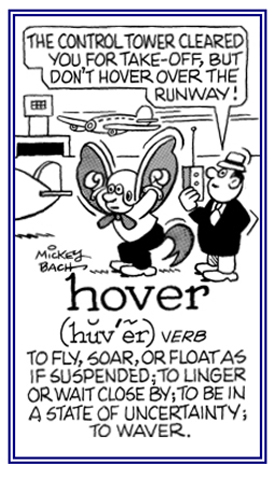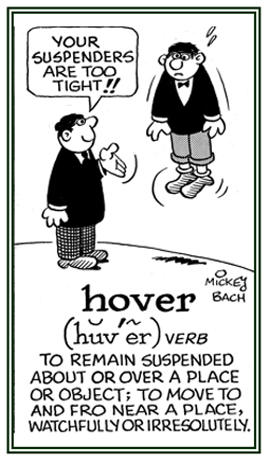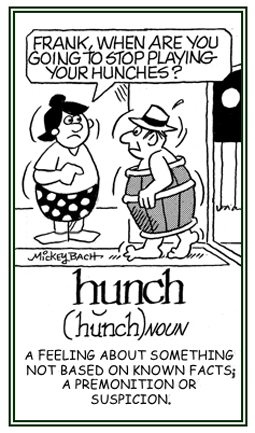English Words in Action, Group H
(a variety of English words which have developed through history and are currently used in our modern age)
Simply click on this banner (or the following link) and you will be on your way to stimulate your brain for greater word comprehension with quizzes based on some of the words in this unit.
2. A position of guidance or control of an organization or government: "The governor took the state's helm immediately after winning the election."
"The president of the country has been under close scrutiny since he took the helm of the government a year ago."
2. Covered with fuzzy gray down or hair: The leaves on the strange plant in the garden were hoary and soft to touch.
3. Descriptive of someone or something which is old, respected, and considered ancient: The hoary monk was proud of the ancient, hoary text of the scriptures in his possession.
4. Something which is overused or that which is old and stale from overuse and so it is not interesting nor funny because of being presented too often: Jake's jokes were getting hoarier each time he told another one.
5. Etymology: from Old English har, "gray, venerable, old"; the connecting idea being "gray hair".
German continues using the word as a title of respect; as in Herr preceding the name of a man: "Guten morgan, Herr Schmidt."
Also, a reference to "frost", as it is recorded in Old English expressing the resemblance of the white feathers of frost with that of an old man's beard.
2. To stay very close to others or a place: When Tom and Mary were in the restaurant, the waiter hovered near their table to take their order for dinner.


Go to this Word A Day Revisited Index
so you can see more of Mickey Bach's cartoons.
2. Someone who writes material for TV or radio programs: Stanley's journalism degree landed him a job as a showy huckster for the local TV station.
3. Formerly, a peddler of small wares or provisions; especially, fresh fruits and vegetables: In the village, there was no grocery store; however, there was a huckster who went from door to door selling produce and dry goods.
2. Etymology: from legal Anglo-Norman (the French imported to England by William the Conqueror and used there as the official language for several hundred years following 1066): hu, "outcry" + e, "and" + cri, "cry"; the outcry calling to help pursue a felon.
Over the years, hu e cri became hue and cry in English.
2. Someone who attempts to deceive or to dupe another person: The speeches of the humbug that was running for office attempted to gloss over his dubious accomplishments and false promises.
That humbug tried to pass herself off as a legitimate lawyer.
3. That which is nonsense or deceiving: Free medical care? Humbug!4. In Britain, a hard candy; especially, one that is flavored with peppermint: Mrs. Jackson bought some humbug as an additional surprise for her son's birthday because this was one of his favorite sweets.
5. Etymology: a slang term that came into use in England about 1750 meaning fraud, sham; but its origin was lost before it attracted attention; so, its origin is not known. A person who is engaged in deception or fraud was first recorded in 1804.
An Original Creation for Charles Darwin
The well-known naturalist, Charles Darwin, was once approached by two young boys of a family where he was a guest.
Earlier they were out in a grassy field where they caught a butterfly, a centipede, a beetle, and a grasshopper.
Using the centipede's body, the butterfly's wings, the beetle's head, and the grasshopper's legs; the boys glued them together to compile a unique insect.
"We caught this bug in the field", they told Darwin. "Do you know what kind of a bug it is Mr. Darwin?"
Darwin looked at it with what appeared to be great interest. "Did you notice whether it hummed when you caught it, boys?", he asked as if he were serious.
"Yes, sir", they responded, as they struggled to hide their laughter.
"Just as I thought", said Darwin. "This is a humbug".
Ignorance more frequently begets confidence than does knowledge: it is those who know little, not those who know much, who so positively assert that this or that problem will never be solved by science.
P.T. Barnum is quoted as saying: "The people like to be humbugged."
There are some people who are convinced that too many politicians are involved in humbuggery in order to fool the voters so they will elect such candidates.
2. A stoop or a curved posture of the body with the head down and shoulders forward: A famous person in history with a hunch was the "Hunchback of Notre Dame".
3. A large lump or slice of something: "MMM – chocolate", Marjory said as she cut herself a hunch of cake.
4. Etymology: originally (1581) a verb, "to push, to thrust", of unknown origin.
Until the rise of scientific medicine, it was generally believed that a deformed person had special links with the demonic world.
- A gross malformation; such as, a hump or hunch in the spine was considered to be a mark of great psychic powers.
- With special connections with the devil, a hunchback was believed to be capable of seeing into the future.
- For centuries, accurate predictions were strongly linked with the possession of a gnarled back.
- As a result, any premonition or flash of insight came to be known as a hunch.

Go to this Word A Day Revisited Index
so you can see more of Mickey Bach's cartoons.
2. To push or to shove; to thrust oneself forward: The little boy wanted to be in the front of the photograph, so he hunched himself through the group.
3. To assume a crouched or cramped posture: When the dog came into the room, the cat hunched in a corner.
2. An obstacle, a barrier, a difficulty, a hindrance, an obstruction, a stumbling block, an interference: The final exam is the student's last hurtle before graduation.
The rocket hurtled toward its target.
2. To overcome or to deal with successfully; to surmount: Jim was striving to hurtle his injury after the operation on his back.3. To speed, to fly, to race, to rush, to gallop; to go like the wind, to go like a shot: The motorcycle hurtled along the road at 100 miles an hour.
When something like a train, a racecar, a bobsled, a missile, an avalanche, etc. hurtles, it moves or travels very fast or with great velocity.
Many cars were hurtling down the freeway during rush hour.
4. To throw forcibly, to fling with great power; to whirl: The baseball pitcher hurtled the ball toward the batter and he hit a homerun.Links to all of the groups of English words in action, Groups A to Z.
You may see the bibliographic list of sources of information for these words in action.


